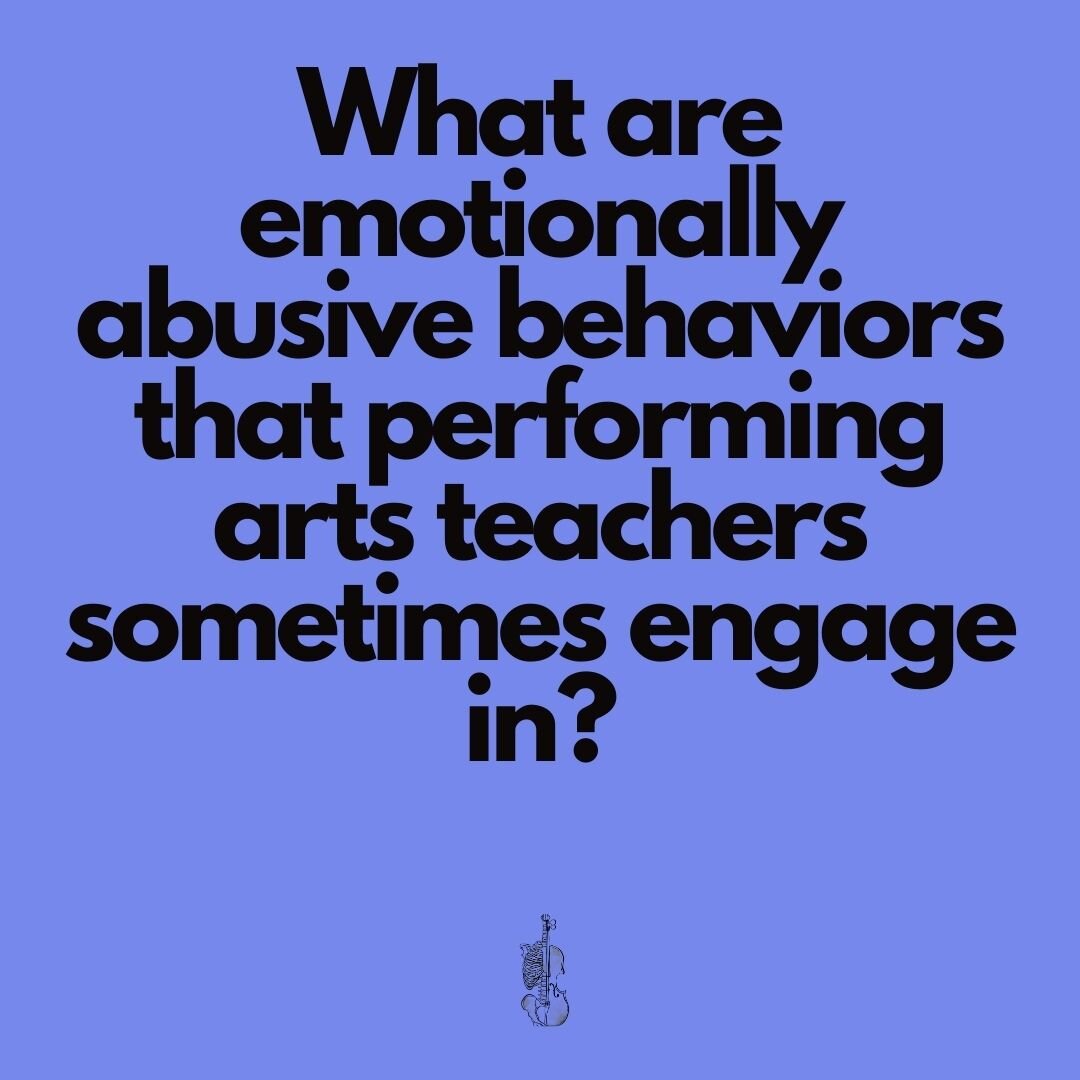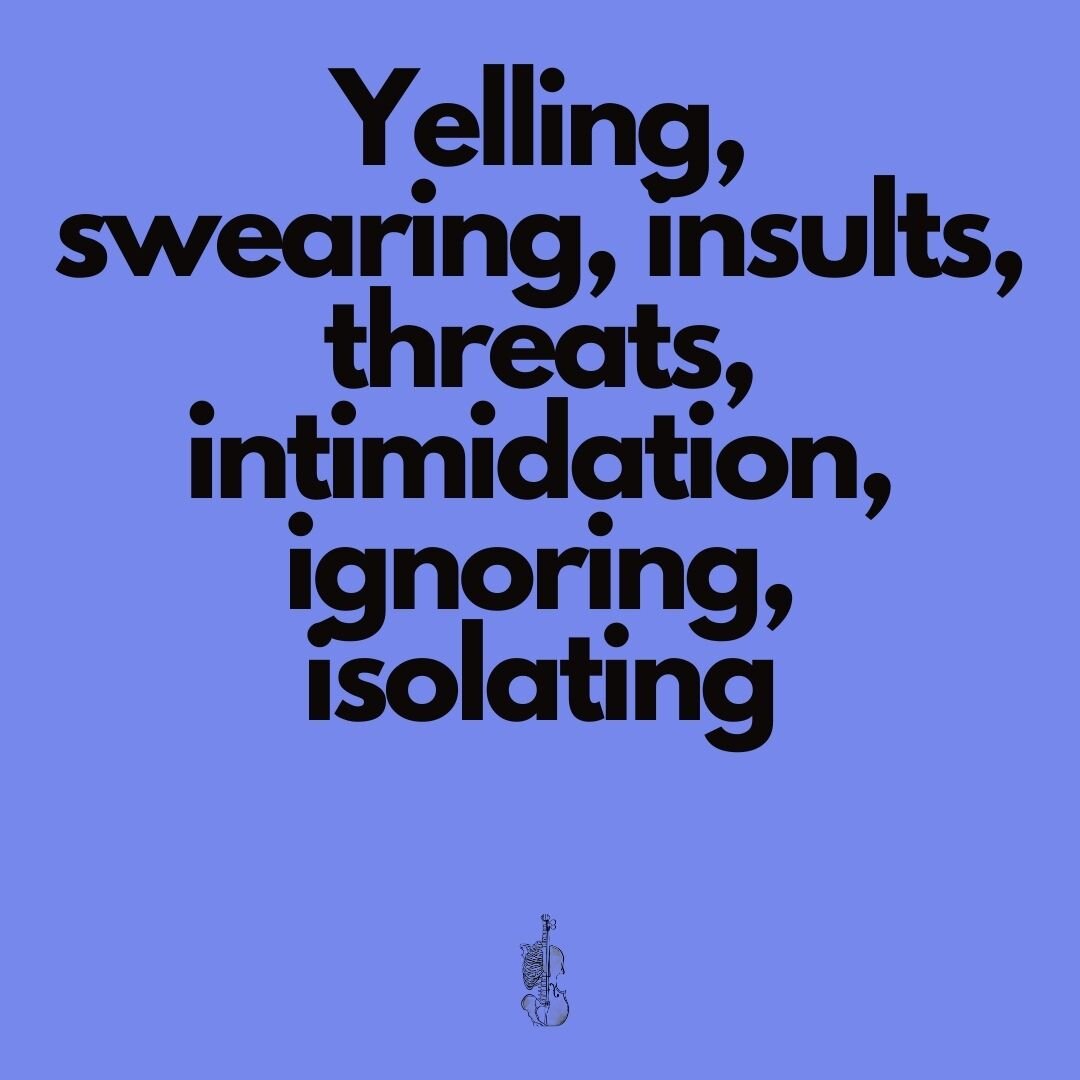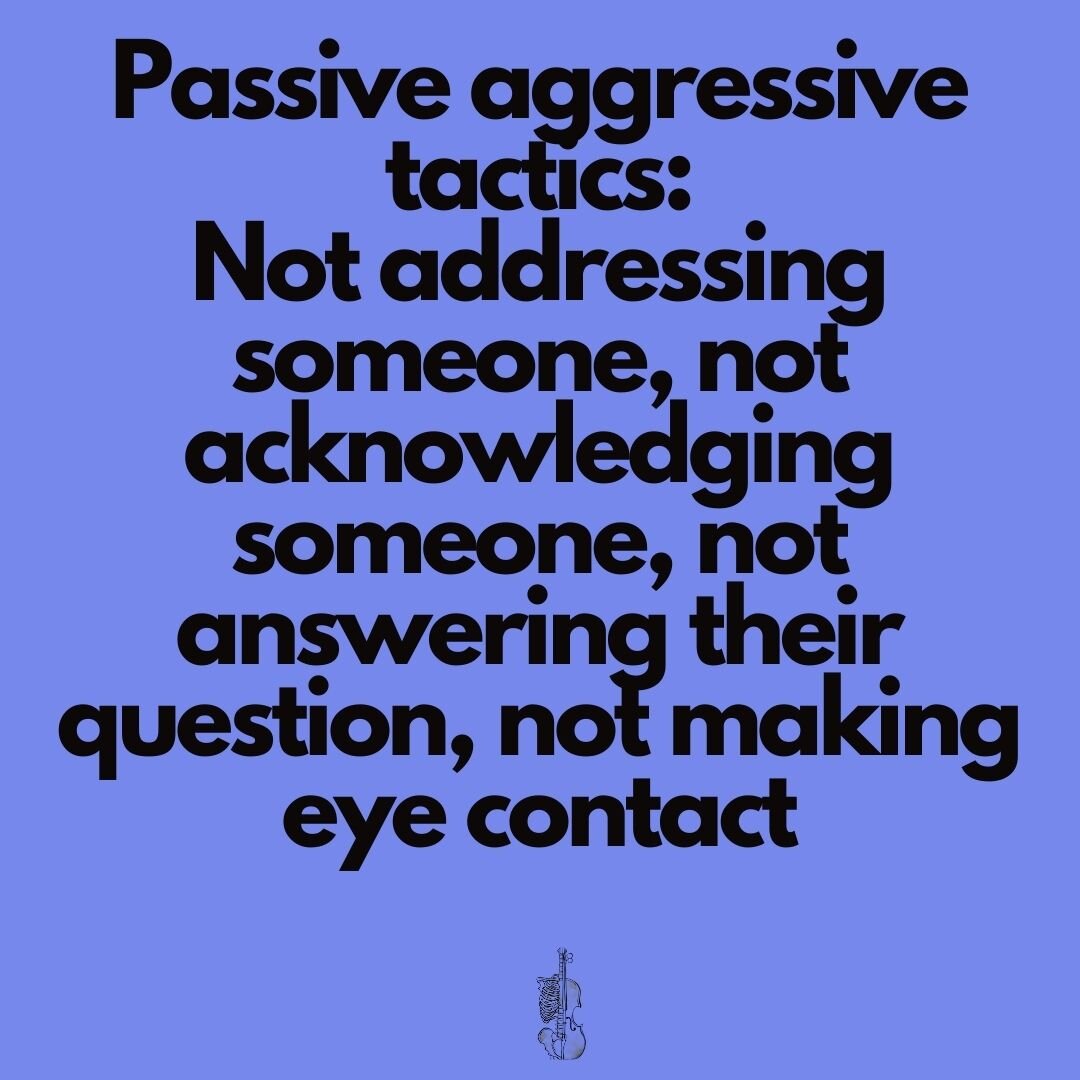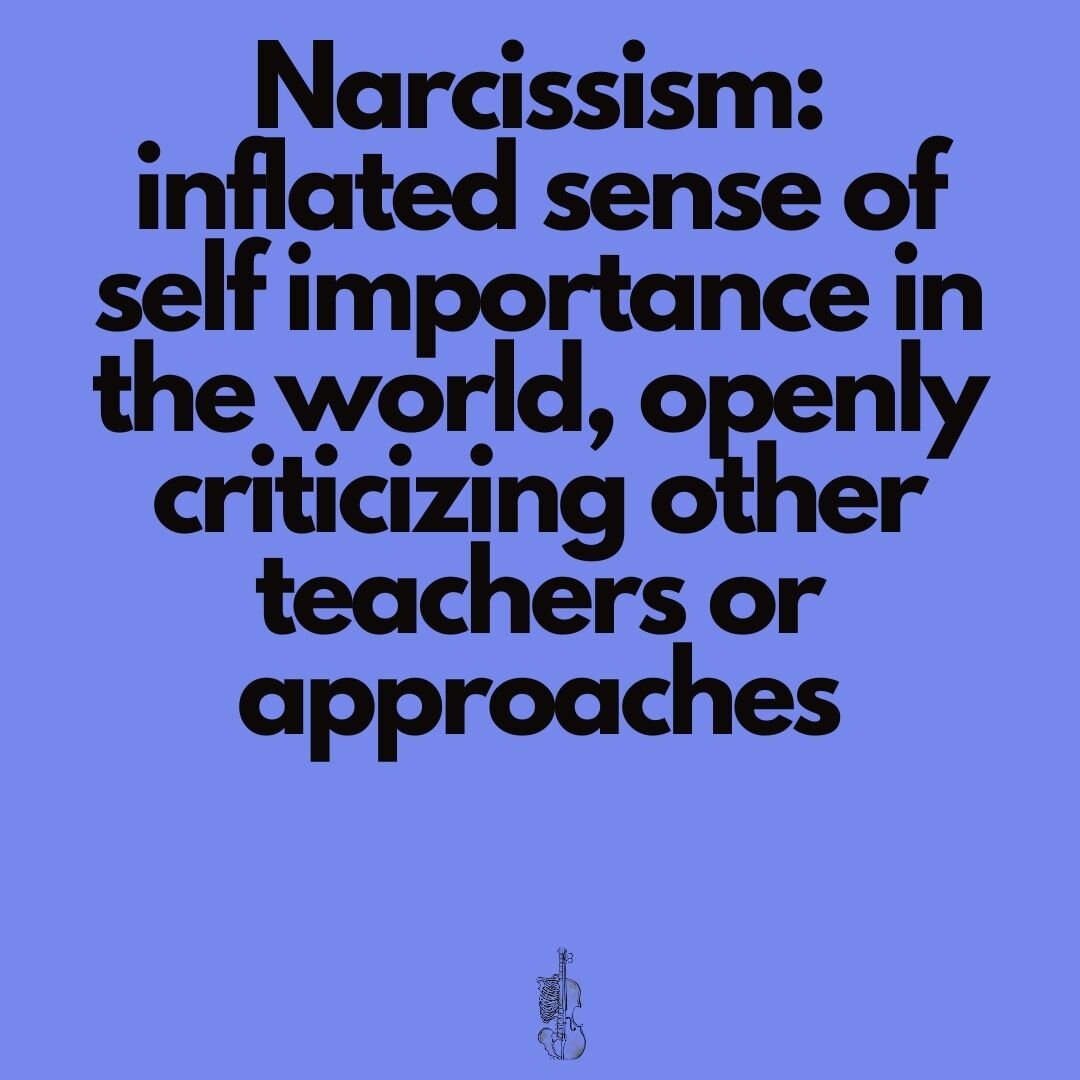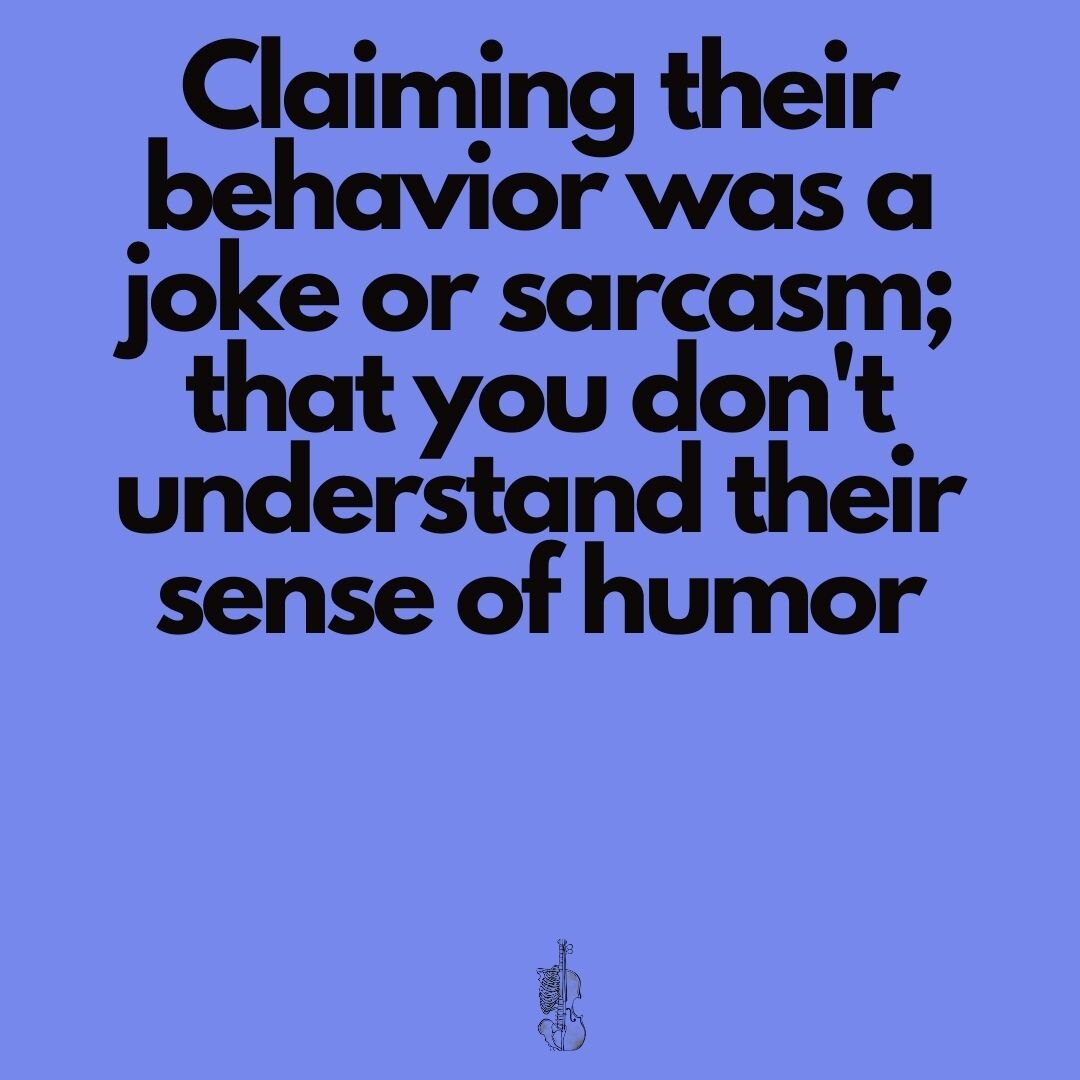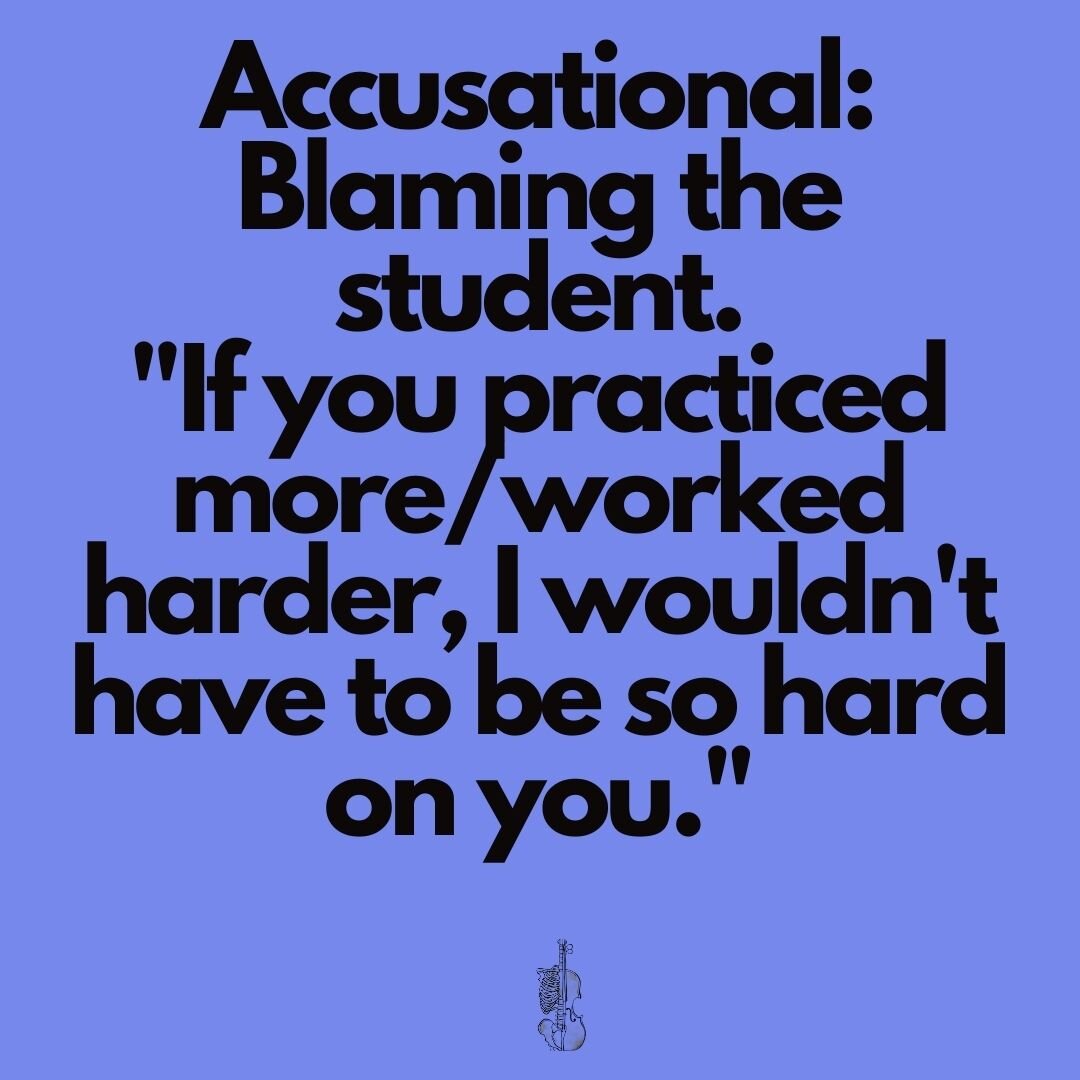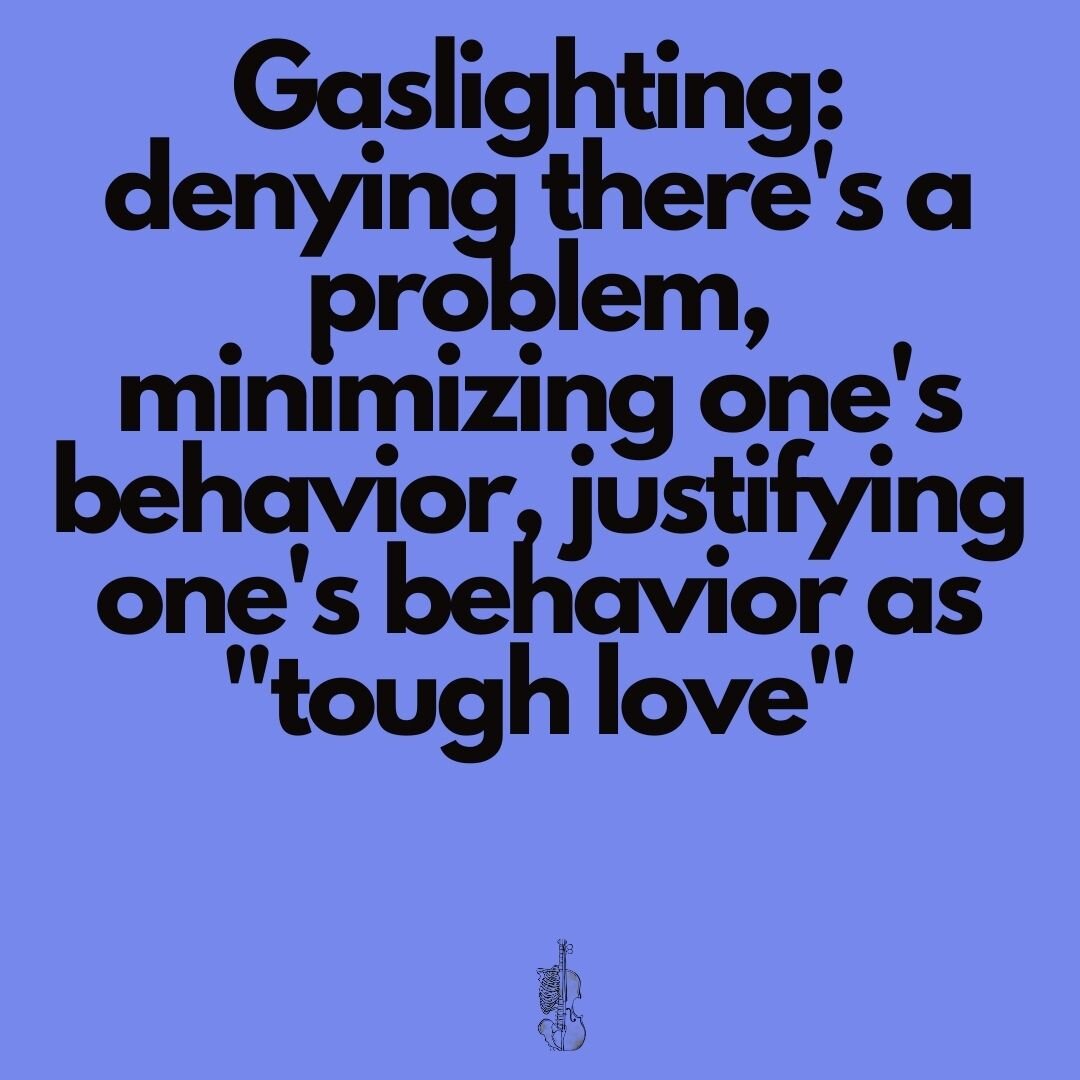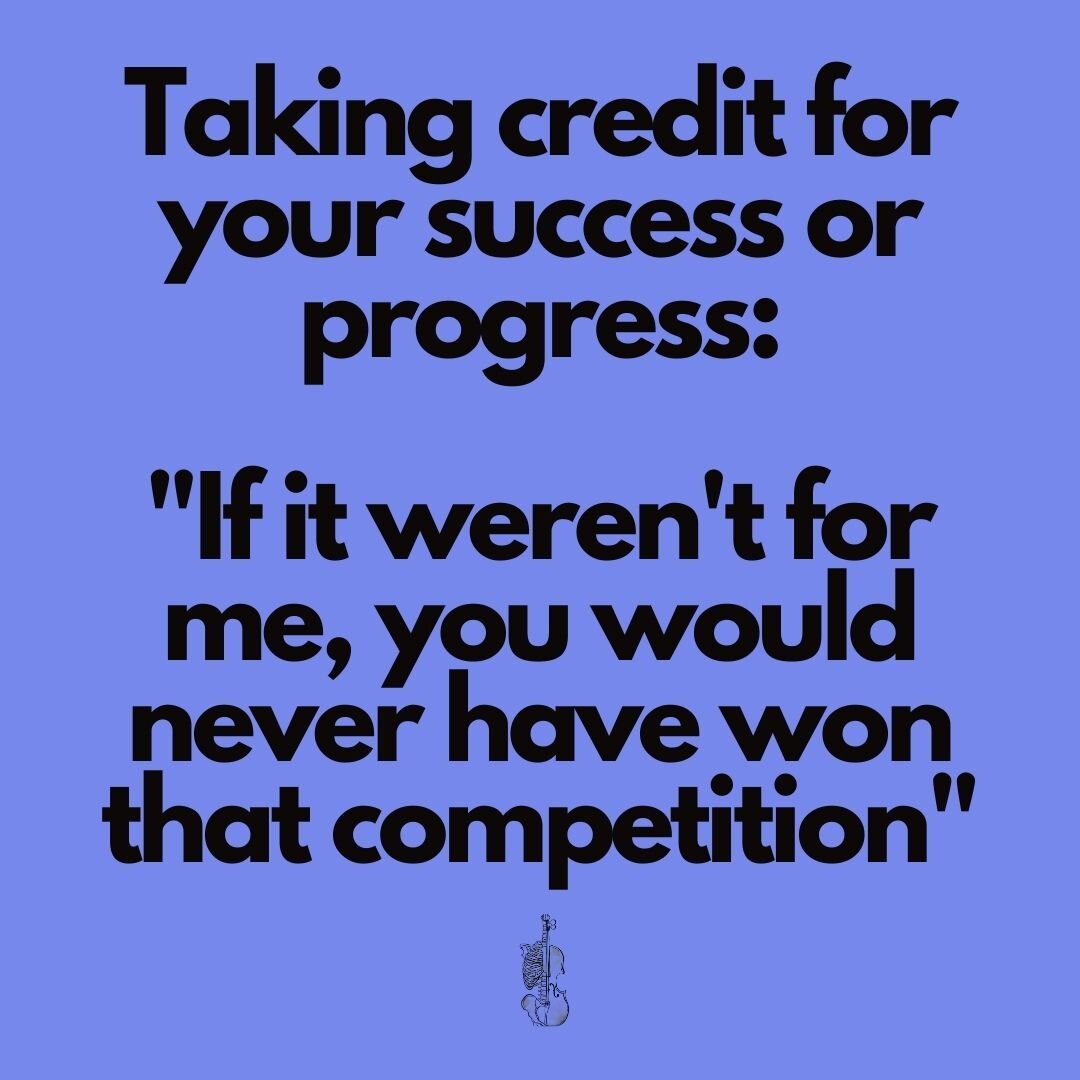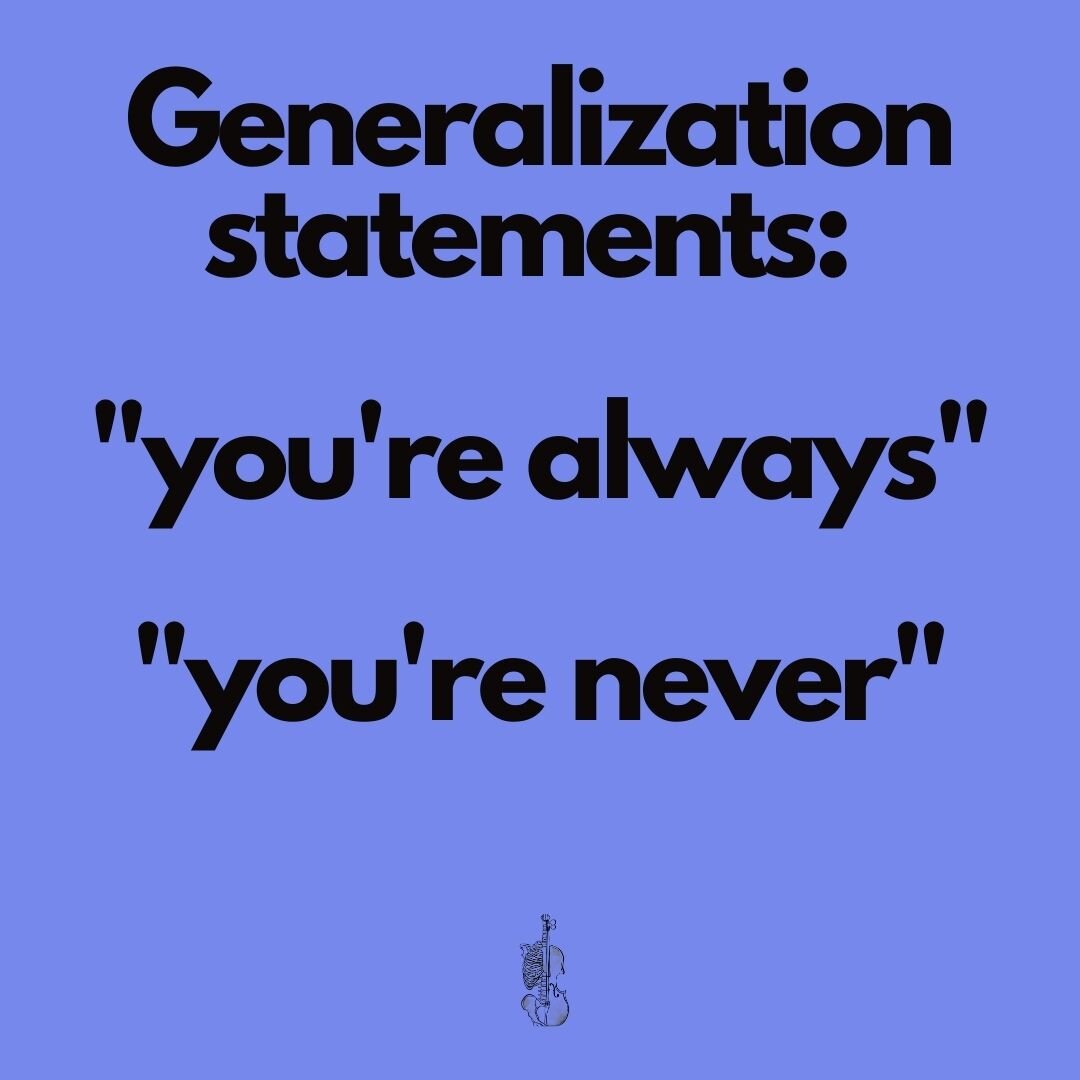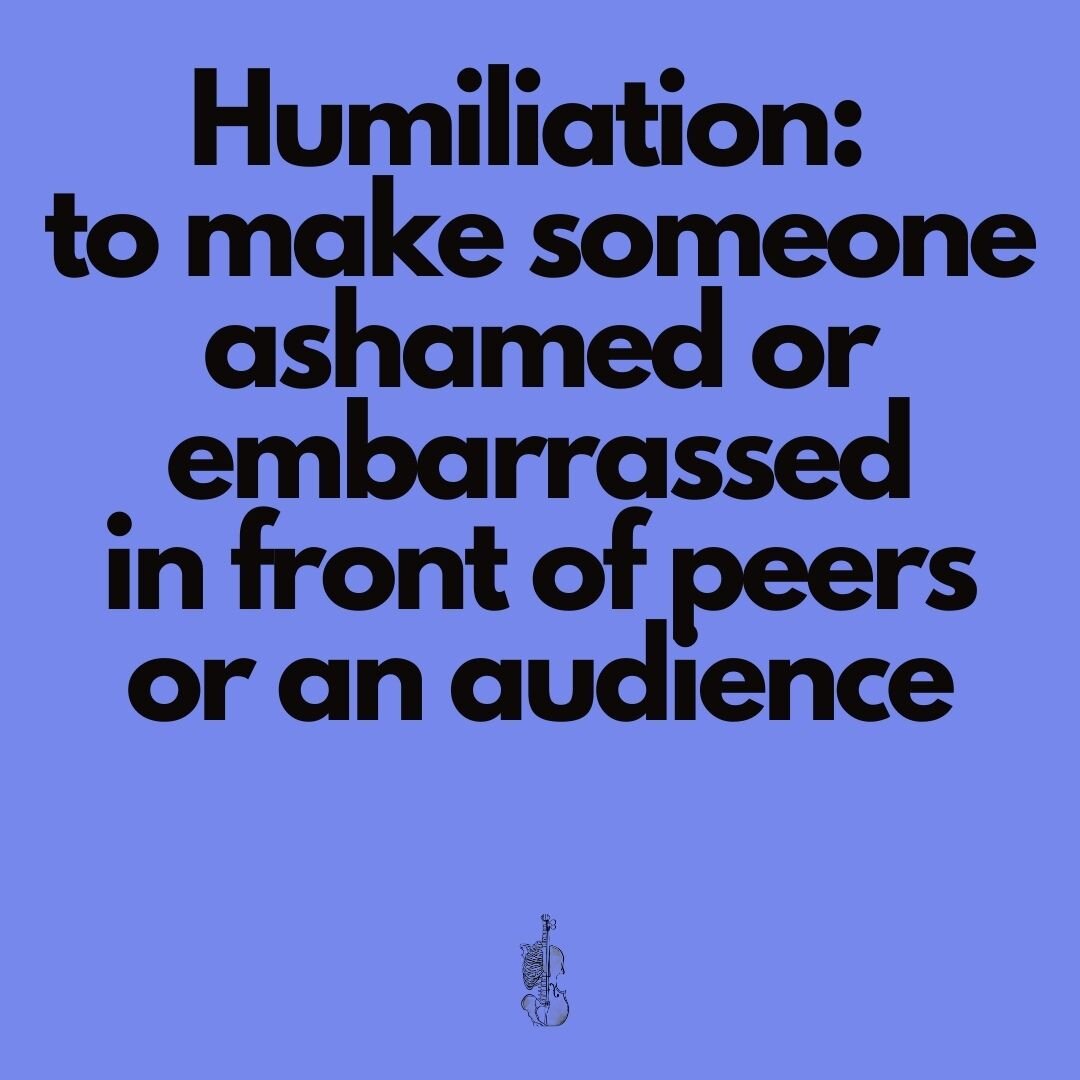What Are Abusive Behaviors in Arts Education? Part 1
Last month, I had an instagram post on unhealthy teaching behaviors in the arts that went viral, with over 8,000 shares and a reach of 78,000 people. I received over 225 comments and direct messages back with personal stories that related to these behaviors and this post, which were deeply disturbing to read. Students wrote about their experiences with teachers humiliating them publicly, making sexually inappropriate comments, or making comments about their race, as well as teachers throwing objects at them, calling them names, yelling at them, or making derogatory comments about their appearance, size, or abilities. Clearly, this is a topic that needs to be addressed in all education.
Let’s take a step back: what are some of the abusive teaching behaviors that have been accepted as “normal” in arts education, including music, dance, theater, and more?
-Public humiliation: shaming a student in front of peers or an audience. This can be humiliating a student in an orchestra or choir rehearsal, a studio class, or in a masterclass setting.
-Yelling, swearing, insults, threats, intimidation, isolation, or ignoring a student. Many students in dance and theater reported stories on this, although it most likely occurs in many different educational circumstances.
-Using fear, punishment, or shame to “motivate” students. This came up a lot, with comments such as “you’ll never be good enough for X,” “you’ll never get into X,” “you just don’t have what it takes,” and similar comments. The statement “you’ll never…” is especially problematic, because the teacher is presuming to know the potential of the student, making a judgment about their abilities, work ethic, and career prospects, and may not be offering constructive ways to improve or fix an issue. Fear and shame are also present in large classroom management circumstances: many students reported these behaviors in ensemble rehearsals and stage productions.
-Blaming students: “if you worked harder, I wouldn’t have to be so hard on you.”
-Making comments on a students appearance, race, size, disability, gender, or sexuality. This issue came up with a lot of comments reported from students, whether from dance, opera, or theater directors, or from voice coaches.
-Narcissistic behaviors: the belief that the teacher’s approach is the only right way, and all other teachers are incompetent. This can include bad mouthing past teachers and other instructors, or telling a student, “you will only improve with my guidance.” This also shows up with teachers taking credit for a student’s success, with “if it weren’t for me, you would have never won that competition/job/seat/position.”
-Favoritism: a teacher will favor a student over all others, whether it’s because of their abilities, appearance, wealth, or other qualities. Many students reported stories of being disregarded by teachers, whether they had lesser quality instruments, their parents gave less money to a school, or they were considered a “weaker” student.
These are just some of the many behaviors that have been normalized in arts education, whether in music, dance, theater, or musical theater.
Arts teachers, whether private studio teachers, after school teachers, or school instructors, often come to teaching from a different perspective than most K-12 educators. They may not have degrees in education but will most likely base their own teaching on how they were taught, which may not reflect current research and education practices. These teachers may have degrees in performance or the arts, but may not have as much training in behavior management, psychology, and teaching strategies as classroom teachers. Private studio instructors need no standardized credential offer lessons, especially if they offer lessons at home or online. Most will have degrees in music or another art form, but this is also not required, especially with dance, where a teenager will join a training program and move into the company by 20, retiring in their 30’s. There will be wonderful teachers who do not have college degrees, and there will be teachers will excellent credentials that engage in unhealthy teaching behaviors. Nonetheless, teachers should have an understanding of basic psychology, trauma, and unhealthy teaching behaviors, which have long been considered normal in the arts.
For many years, these and other unhealthy, toxic, and abusive teaching behaviors have been seen as acceptable, whether by colleges, students, or other institutions. Sometimes these are considered “tough love,” or justified by the prestige of the teacher’s career as a performer, director, or writer. Students who report these behaviors may be perceived as weak, too sensitive, or unable to take the pressure, when in fact the learning environment and teaching is unhealthy for anyone. I also received many comments about teachers who made sexually inappropriate comments towards students, and when they reported them, nothing was done. I’ve also heard many stories about BIPOC students being told that they would not succeed in music, theater, or dance, because of their race. This is unacceptable, and should never be tolerated, and should never have been tolerated. The shift to online education gives us an opportunity to reassess how we teach, how we were taught, and how we can all teach better. This kind of behavior has been pervasive for years in arts programs, and needs to stop.


